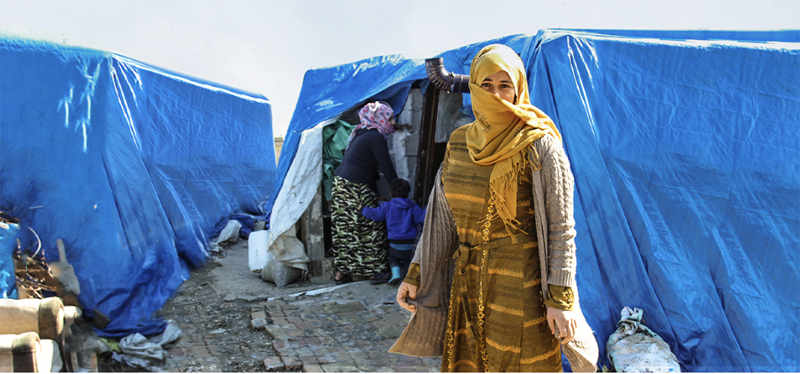Farah* and her son arrived in Greece as refugees from the Middle East. Over time, she became a familiar face at a local ministry’s refugee center as she sought to get her paperwork, and that of her son’s, in order. Workers were impressed with her dignity and determination. Despite the difficulties she faced in her home country, she remained courageous, pushing forward toward a future that promised to be better than her past. But when her health took a drastic, deadly turn, the life she’d hoped to attain for herself disappeared.

One day, ministry workers discovered Farah lying quietly on the couch in the refugee center’s reception area. Alarmed by how ill she seemed, they called an ambulance. The next day, they learned of her diagnosis: final-stage pancreatic cancer.
Farah was admitted to the hospital, but she refused to give her son’s phone number to the ministry workers. He no longer lived in Greece, and she was afraid that if he returned to see her, it would destroy his own future, one they had struggled for so long to build.
Farah wasn’t a believer, but ministry workers regularly visited her in the hospital, sharing the gospel and praying for her. One day, she directed their attention through her window, to a nearby church. “Every day, I talk to God,” she said.
Farah’s time receiving health care soon, and unexpectedly, ended as the hospital was forced to discharge her due to being understaffed. Ministry workers begged the hospital to reconsider, but they would not, and she was sent away, left to fend for herself.
Knowing her life was quickly slipping away, the missionaries arranged to pick her up and bring her to the refugee center. They did not want to lose the chance to urge her to give her life to Christ. But shortly before the time of their meeting, Farah’s phone was disconnected, and the missionaries could not locate her.
But the missionaries did not give up. They rang doorbells, asked strangers, and called her name as they walked the streets. Then, miraculously, they found Farah. She was lying, half naked, in a dirty basement apartment crowded with undocumented people who fled upon the missionaries’ arrival.
Farah couldn’t stand or dress herself. “She now needed to be held and dressed and carried,” one of the missionaries later said. They didn’t hesitate to help her and call an ambulance.
During the ride to the hospital, the missionaries became aware of a holy sensation that seemed to settle inside the ambulance. They called another worker at the refugee center who spoke Farah’s language, and he reminded her of what she’d already been told: Christ came to save her and offer her eternal life.
Then, he prayed the prayer of salvation with her. “She couldn’t talk, but she could nod with her head,” the ministry leader said. “The ambulance became a sacred space full of peace where a soul was surrendered to Christ.”
Farah died the next day, and the missionaries know that God opened the door for them to urge her toward a decision to trust in Him. Their experience with Farah also served as a reminder of the importance of their work as a ministry. “Farah reminded us why we exist as an organization: to reach every person, every “Farah,” every basement, whether literal or spiritual,” the ministry leader said. “Where silence, abandonment, and pain reigns, Christ arrives and gives hope and life.” — Christian Aid Mission
*Name changed for security.



